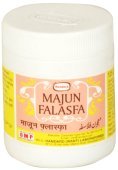Hindi, Hiṇḍī, Hiṃdī, Himdi, Hindī: 13 definitions
Introduction:
Hindi means something in Hinduism, Sanskrit, the history of ancient India, Jainism, Prakrit, Hindi, biology. If you want to know the exact meaning, history, etymology or English translation of this term then check out the descriptions on this page. Add your comment or reference to a book if you want to contribute to this summary article.
Images (photo gallery)
India history and geography
Source: archive.org: Hindu Mathematics (History)Hindi has been used for Indian, and Hind for India.—The word hindi is an adjective formed from hind and means “Indian”. The fact that in a few isolated cases, it has been confused with the word hindasi cannot
make us conclude that this has happened in all cases.

The history of India traces the identification of countries, villages, towns and other regions of India, as well as mythology, zoology, royal dynasties, rulers, tribes, local festivities and traditions and regional languages. Ancient India enjoyed religious freedom and encourages the path of Dharma, a concept common to Buddhism, Hinduism, and Jainism.
Biology (plants and animals)
Source: Google Books: CRC World Dictionary (Regional names)Hindi in India is the name of a plant defined with Sapindus emarginatus in various botanical sources. This page contains potential references in Ayurveda, modern medicine, and other folk traditions or local practices It has the synonym Sapindus emarginatus Hort. Alger. (among others).
Example references for further research on medicinal uses or toxicity (see latin names for full list):
· Species Plantarum (1753)
· Taxon (1982)
· Catalogue des Plantes de Madagascar, Sapind. (1931)
· Bulletin de la Société Imperiale des Naturalistes de Moscou (1863)
· Rev. Hortic. (1895)
If you are looking for specific details regarding Hindi, for example extract dosage, pregnancy safety, side effects, diet and recipes, health benefits, chemical composition, have a look at these references.

This sections includes definitions from the five kingdoms of living things: Animals, Plants, Fungi, Protists and Monera. It will include both the official binomial nomenclature (scientific names usually in Latin) as well as regional spellings and variants.
Languages of India and abroad
Sanskrit dictionary
Source: DDSA: The practical Sanskrit-English dictionaryHiṇḍī (हिण्डी).—Name of Durgā.
Source: Cologne Digital Sanskrit Dictionaries: Shabda-Sagara Sanskrit-English DictionaryHiṇḍī (हिण्डी).—f. (-ṇḍī) A name of Durga. E. hiḍi to go or despise, (the Asuras,) in aff., and ṅīp added.
Source: Cologne Digital Sanskrit Dictionaries: Benfey Sanskrit-English DictionaryHiṇḍī (हिण्डी).—f. Durgā.
Source: Cologne Digital Sanskrit Dictionaries: Monier-Williams Sanskrit-English Dictionary1) Hiṇḍi (हिण्डि):—[from hiṇḍ] ([probably]) f. = -rātrau rakṣā-cāra, [cf. Lexicographers, esp. such as amarasiṃha, halāyudha, hemacandra, etc.]
2) Hiṇḍī (हिण्डी):—[from hiṇḍ] f. Name of Durgā, [cf. Lexicographers, esp. such as amarasiṃha, halāyudha, hemacandra, etc.]
Source: Cologne Digital Sanskrit Dictionaries: Yates Sanskrit-English DictionaryHiṇḍī (हिण्डी):—(ṇḍī) 3. f. A name of Durgā.
Source: DDSA: Paia-sadda-mahannavo; a comprehensive Prakrit Hindi dictionary (S)Hiṇḍi (हिण्डि) in the Sanskrit language is related to the Prakrit word: Hiṃḍi.
[Sanskrit to German]
Sanskrit, also spelled संस्कृतम् (saṃskṛtam), is an ancient language of India commonly seen as the grandmother of the Indo-European language family (even English!). Closely allied with Prakrit and Pali, Sanskrit is more exhaustive in both grammar and terms and has the most extensive collection of literature in the world, greatly surpassing its sister-languages Greek and Latin.
Hindi dictionary
Source: DDSA: A practical Hindi-English dictionaryHiṃdī (हिंदी) [Also spelled hindi]:—(nf) the Hindi language; (a) Indian; —[na phārasī miyāṃ jī banārasī] the ass waggeth his ears.
Source: DDSA: A practical Hindi-English dictionaryHindi in Hindi refers in English to:—(nf) the Hindi language; (a) Indian; —[na pharasi miyam ji banarasi] the ass waggeth his ears..—hindi (हिंदी) is alternatively transliterated as Hiṃdī.
...
Prakrit-English dictionary
Source: DDSA: Paia-sadda-mahannavo; a comprehensive Prakrit Hindi dictionary1) Hiṃḍi (हिंडि) in the Prakrit language is related to the Sanskrit word: Hiṇḍi.
2) Hiṃḍi (हिंडि) also relates to the Sanskrit word: Hiṇḍin.
Prakrit is an ancient language closely associated with both Pali and Sanskrit. Jain literature is often composed in this language or sub-dialects, such as the Agamas and their commentaries which are written in Ardhamagadhi and Maharashtri Prakrit. The earliest extant texts can be dated to as early as the 4th century BCE although core portions might be older.
Kannada-English dictionary
Source: Alar: Kannada-English corpusHiṃḍi (ಹಿಂಡಿ):—
1) [noun] a mass of crushed oilseed from which the oil has been extracted, used as livestock feed and as a fertiliser; oil-cake.
2) [noun] a kind of relish made of grams, spices, herbs, etc.
3) [noun] a kind of sweet dish.
--- OR ---
Hiṃḍi (ಹಿಂಡಿ):—
1) [noun] the tree Spondias pinnata ( = S. mangifera) of anacardiaceae family.
2) [noun] its plum.
3) [noun] the plant Gymnacranthera canarica ( = Myristica canarica) of Myristicaceae family.
4) [noun] the plant Hibiscus cannabinus of Malvaceae family; deccan hemp.
--- OR ---
Hiṃdi (ಹಿಂದಿ):—[noun] an Indo-Aryan language, the main language of North India; Hindi.
Kannada is a Dravidian language (as opposed to the Indo-European language family) mainly spoken in the southwestern region of India.
See also (Relevant definitions)
Starts with (+9): Himdia, Himdidu, Himdige, Himdike, Himdikku, Himdilgattu, Himdilu, Himdirisu, Himdirugisu, Himdirugu, Himdisoppu, Himdiya, Hindi salsa, Hindi-chob-chini, Hindi-sana, Hindi-sanaka-pat, Hindi-sena, Hindichobchini, Hindika, Hindikanta.
Ends with (+84): Aanabahe-hindi, Acchindi, Agar hindi, Agare-hindi, Agre-hindi, Ahindi, Amba-hindi, Angarae-hindi, Angaraehindi, Angharae-hindi, Angharaehindi, Anvahindi, Artaniyae-hindi, Aude-hindi, Aunnabe-hindi, Aunnabehindi, Azaddarachtehindi, Ban-bhindi, Bana bhindi, Bazrulmazariyune-hindi.
Full-text (+13410): Hindipriyatama, Hindikanta, Mahapralaya, Dakkhina, Dakkhin, Himdavi, Hindin, Intuvi, Lard, Mahapinditaru, Roti, Kobbari, Mahajyotinmati, Mahaparevata, Nadikalapaka, Parval, Mahasamanga, Nilamlana, Gopalakarkati, Kundarnava.
Relevant text
Search found 85 books and stories containing Hindi, Hiṇḍī, Hiṇḍi, Hiṃdi, Hiṃḍi, Hiṃdī, Himdi, Hindī; (plurals include: Hindis, Hiṇḍīs, Hiṇḍis, Hiṃdis, Hiṃḍis, Hiṃdīs, Himdis, Hindīs). You can also click to the full overview containing English textual excerpts. Below are direct links for the most relevant articles:
Tattvartha Sutra (with commentary) (by Vijay K. Jain)
Vijay K. Jain — Biographical note
Verse 9.43 - Vitarka is scriptural knowledge < [Chapter 9 - Stoppage and Shedding of Karmas]
Trishashti Shalaka Purusha Caritra (by Helen M. Johnson)
Part 6: Vasudeva leaves home < [Chapter II - Marriages of Vasudeva with maidens]
Thirty-six weapons < [Notes]
Prasthanatrayi Swaminarayan Bhashyam (Study) (by Sadhu Gyanananddas)
Introduction (Soteriology) < [Chapter 5 - Analysis on the basis of Soteriology]
1.3. Pramāṇas: Basic Introduction < [Chapter 2 - Analysis on the Basis Of Epistemology]
Kathasaritsagara (the Ocean of Story) (by Somadeva)
Introductory Remarks (to the Vetālapañcaviṃśati) < [Appendix 6.1 - The Twenty-five Tales of a Vetāla]
The legend of the huge fish < [Notes]
Vetāla 24: The Father that married the Daughter and the Son that married the Mother < [Appendix 6.1 - The Twenty-five Tales of a Vetāla]
A Case for Preparation of Modern Bilingual < [January – March, 2007]
Hindi and Indian Nationalism < [September 1937]
‘The Triple Stream’ < [July 1955]
Lord Jhulelal: An Analytical Study (by Thakkar Harish Gopalji)
Part 5.9 - Bhagwan Jhulelal (Hindi), Author Prof. Netrapal Sinh < [Chapter 2 - Literature Review]
Part 9 - Films < [Chapter 3 - Research Methodology]
Part 5.1 - Shri Amar Katha–Shri Jhulelalji < [Chapter 2 - Literature Review]
Related products
(+14 more products available)






